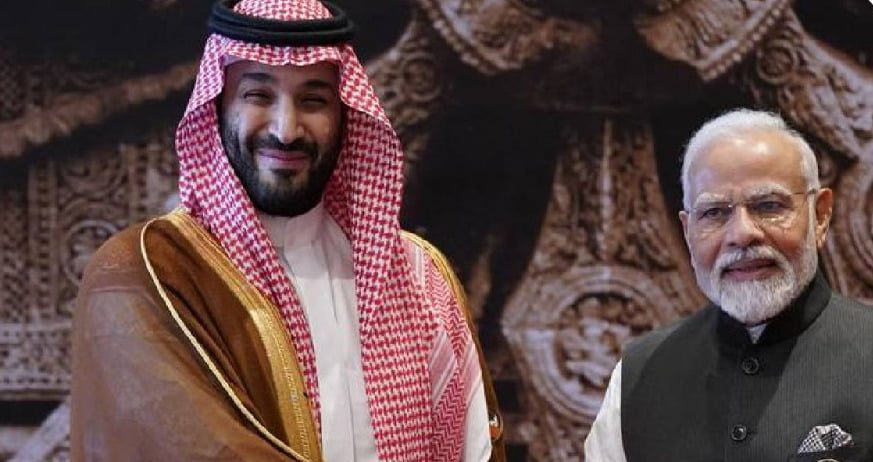Prime Minister Narendra Modi is on a visit to Saudi Arabia amid a dispute over the Waqf Amendment Act. The yatra has been organized at a special invitation of Saudi Crown Prince Mohammed bin Salman. Narendra Modi is on a visit to Saudi Arabia for the third time after becoming Prime Minister in 2014. Crown Prince and PM Modi have friendly relations. But there is a discussion on social media that while some Muslims in India are angry with the government due to Waqf law, a Muslim country is openly welcomed by PM Modi.
How different is this from the new law of India?
Simply put, Waqf management in Saudi Arabia is completely under government control. While the Waqf Board is an independent institution in India. Which has no direct control of the government. Saudi Arabia has already announced that it will spend its Waqf property on the development of the country. But even a slight improvement in India is not acceptable. Some people are even saying that Saudi Arabia should talk to Prime Minister Modi on this matter. Finally, what does Saudi Arabia’s Waqf law say? How different the Waqf law is from India’s new law?
What are the similarities and differences between the laws of India and Saudi Arabia?
First of all, know that the purpose of Waqf law is the same in both countries. The main objective of Waqf properties is to use mosques, cemeteries, madrasas etc. for religious or social service purposes. Laws of the two countries ban the purchase, sale or non-religious use of Waqf properties. Waqf properties in both countries are managed by the government formed by the government. But Saudi Arabia’s Waqf law is ruled by Sharia. The Ministry of Islamic Affairs and local Waqf agencies in Saudi Arabia administer it. India has Waqf Tribunal and Civil Court. Whereas Saudi Arabia has a Sharia court which hears cases related to it. Due to secularism in India, courts can also interfere in religious matters. Religion and rule are not different in Saudi Arabia; The government there directly implements religious laws. Waqf properties under the Indian Waqf Act are registered with the Waqf Board. But Waqf properties in Saudi Arabia are registered with the Ministry. Its complete data is there. Each land papers are similar to registration of any other land in India.
Who runs the Waqf Board of Saudi Arabia?
Waqf management in Saudi Arabia is based on the principles of Islamic Sharia. It is managed by the Ministry of Charitable work, charitable work and religious affairs of Saudi Arabia. What will be the property after the settlement, who will protect it and where it will be used, it is all decided by the Ministry. The ministry has a committee of Ulama, which monitors it. This committee decides according to Sharia. Some small Waqfs are controlled by local trustees or matches. But they will also have to follow the guidelines of the government.
How much control does the government have?
The Ministry of Ukaf of the Saudi government has complete control over this committee. The ministry has a record of all Waqf properties and also knows where they are being used. Where is the Waqf Fund being spent, where is it being invested in mosques, schools and charity; The government there keeps an account of every money. Under the Saudi Vision 2030, the government is going to spend 350 billion rials from Waqf property on the development of the country.
The post PM Modi Yatra Yatra: PM Modi reached Riyadh at the invitation of Crown Prince first appeared on News India Live | Breaking India News, The Indian Headline, India Express News, Fast India News.
